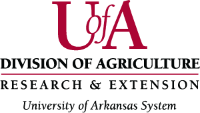Responsibilities within the Graduate Program
A. Responsibilities of the Department Head
The Department Head is chief executive for the major professor, the advisory committee, and the student. He serves as an ex officio member of all committees and may advise any committee member, the major professor, or the student in regard to quality of the student's performance.
Recent legislation requires each department to have an educational assessment plan for the evaluation of students as they finish their advanced degrees. In the Department of Crop, Soil, and Environmental Sciences, this plan includes a written questionnaire and an oral exit interview with the Department Head in addition to the oral defense normally required for the degree.
B. Responsibilities of the Major Professor
The major professor (advisor) should assist the student in choosing his or her graduate research project and should provide advice throughout the student's graduate program. The method and philosophy of developing and carrying out a graduate program should rest with the major professor in consultation with the student's advisory committee. The major professor should approve all course work, and review the progress of the student regularly. The advisor should approve the student's thesis/dissertation before it is submitted to the advisory committee and should examine the final copy of the thesis/dissertation which is submitted to the Graduate School before affixing his/her signature to denote approval of the quality of the research and the mechanical and literary quality of the document.
C. Responsibilities of the Advisory Committee
Members of the advisory committee, appointed by the major professor and the Department Head, serve as an advisory board to both the major professor and the graduate student. They also conduct the oral exam and thesis/dissertation approval. They may also conduct written exams. Supervision of the performance of the graduate student is the responsibility of the major professor, but members of the committee may suggest course work, research techniques, or other needs that will promote success of the student's graduate program. A member of the advisory committee may serve to advise the student in a special area of expertise and coordinate portions of the student's research in agreement with the major professor. The signature of a member of the advisory committee on the student's thesis/dissertation indicates that the committee member believes the quality of both the research and the thesis/dissertation merits approval.
D. Responsibilities of the Graduate Student
1. To the Graduate School It is the responsibility of the graduate student to comply with regulations governing the University of Arkansas and the graduate program as outlined in the Graduate School Catalog. Important deadlines can be met only if the student is familiar with criteria in the catalog and with notifications that are published periodically, particularly during registration procedures.
2. To the Department a. Graduate students holding a half-time appointment are expected to work for their advisors for 20 hours per week. Those on a three-quarter-time appointment are expected to work for their advisor for 30 hours per week. Those on full-time appointments are expected to work for their advisor for 40 hours per week. b. The Department considers it the obligation of the graduate student, and not the major advisor, to initiate all actions required for fulfilling the requirements for the degree. c. The graduate student who holds an assistantship should consider that position a professional obligation and fulfill responsibilities with full regard for professional ethics. Problems that arise should be discussed first with the major professor. If the major professor cannot deal with the problem, the student may consult the Department Head. d. The graduate student involved in research may sometimes be responsible for negotiating with other institutions, industries, or private individuals in relation to funds, supplies, or services. Any communications with such individuals should be conducted with full understanding of University policies and regulations and with approval from the advisor.
3. To the Advisory Committee The student's advisory committee serves both as an advisory committee for his/her graduate program and as a thesis/dissertation and written/oral examining committee. The student should seek the help of any member of the advisory committee whenever it becomes desirable during the course of study. Any major changes in the course work or research will be done in consultation with the committee members.
4. Professionalism One way of showing interest in the profession is to include oneself
in the professional societies which are affiliated with the many areas of Crop, Soil,
and Weed Sciences. Many of the societies are interested in having students as members
so there are special rates for these students. The following is a list of societies
and members who have membership information.
a) American Society of Agronomy, Crop Science Society of America, Soil Science Society
of America - Dr. Robert Bacon and Dr. Duane Wolf. b) Weed Science Society of America
- Dr. Dick Oliver. c) Soil Conservation Society of America - Dr. E. Moye Rutledge.
d) American Society of Plant Physiology - Dr. Derrick Oosterhuis.

